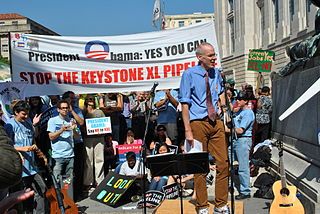Bill McKibben on Peak Oil and Environmental Activism
My friend Cameron Atwood sent me this masterpiece on environmental activism by Bill McKibben, and asked me to comment on what he writes about peak oil.
I believe he’s correct; I think money and technology will converge to keep the world in fossil energy for a very long time to come. We are out of cheap conventional oil, but we’re nowhere near out of unconventional oil, and we (unfortunately) have coal coming out our ears. And you don’t have to be left of center politically to acknowledge that our civilization’s consumption of energy is causing global warming and other damage; I was surprised when the spokesperson for the (ultra-right wing) Cato Institute chimed in his assent to this proposition in an interview I conducted there.
McKibben makes two other points with which I also agree:
1) Activism really IS important. Our “leaders” need to know that we will not stand for business as usual, i.e., sweetheart deals for the energy companies. I’m reminded of Henry Kissinger who said not too long ago, “If it weren’t for the objection of the common American to the war in Vietnam, we’d still be there.” (Emphasis mine.) So, how did the “common American” come to object? Activism, of course. Huge numbers of people (especially but exclusively young people) were visibly going bananas, and eventually, public opinion on the subject became overwhelming. What we see playing out here is the same, fired by cuts to education and other social services, wealth inequality, a trend towards fascism, etc.
2) Activism takes many forms – so many, in fact, that it may be proper to say that it’s “formless.” At a minimum, it doesn’t have some charismatic dude leading a singular, coordinated organization. There are over 200,000 groups whose mission is social and environmental justice. It’s an amazing panorama, and it’s becoming more so every day.


Thanks for your perspective on this, Craig!
As we’ve both agreed for some time, we have lots of oil left of you count the tar sands. However, as we know, these reserves require a vast and permanent wasting of precious freshwater (of which we already run short). Compared with traditional “cheap” oil, the extraction process is far more energy intensive and carbon intensive – also much more expensive on the front end and more risky to transport by pipeline.
Hydraulic fracturing is fraught with a whole set of differing and similar costs and risks. Coal is poisonous stuff for the air and water, and our extraction of it tends to quite thoroughly lay waste to the landscape wherever we scrape it out of the ground.
Whether or not one accepts the preponderance of evidence demonstrating our active and severe disruption of our climate, it’s still obviously and powerfully in the economic and security interests of our nation to quickly implement a strategy that rapidly and effectively moves us off of fossil sunlight and onto the modern stuff while we still have some “cheap” oil left.
Waiting does nobody but the fossil folks any good.
I don’t see how anything you or McKibben have said contradicts the Peak Oil Theory. I believe the theory states explicitly that the oil available at or after the peak will be dirtier, more difficult to extract, and more expensive. Oil is at $95/barrel right now. Remember 2004 when it was at $40/barrel, and people thought $95/barrel would crush the economy? The theory explicitly states that we won’t “run out of oil” at the peak, as your post and McKibben’s analysis seems to assume. It says just the opposite: that at the peak we will be awash in oil. We’ll have the most oil we’re ever going to have. So I just don’t see how this contradicts Peak Oil.